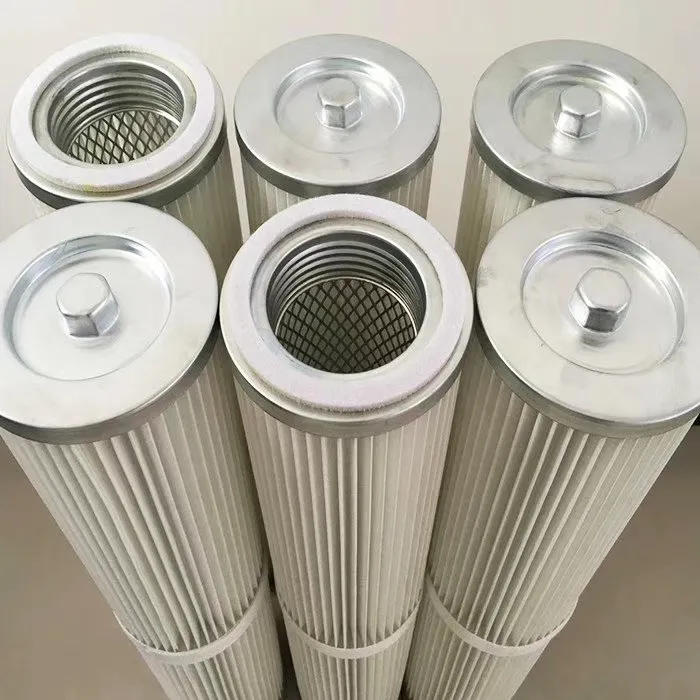 Tel:
+8615930870079
Tel:
+8615930870079
Nov . 08, 2024 16:07 Back to list
stainless steel filter element
Understanding Stainless Steel Filter Elements A Comprehensive Overview
Stainless steel filter elements are vital components extensively used in various industries for separating solids from liquids and gases. Their durability, corrosion resistance, and high filtration efficiency make them an ideal choice for applications where conventional filters may fail. This article delves into the significance, types, applications, and maintenance of stainless steel filter elements.
Significance of Stainless Steel Filter Elements
Stainless steel is an alloy primarily composed of iron, chromium, and, in some cases, nickel and other elements. The inherent properties of stainless steel, such as high tensile strength, resistance to oxidation, and the ability to withstand extreme temperatures, make it a preferred material for manufacturing filter elements. Unlike plastic or fiberglass filters, stainless steel filters can endure harsh environments and chemical exposure, ensuring longevity and reliability.
The use of stainless steel filter elements helps industries enhance product quality by removing contaminants from fluids, thus preventing damage to machinery and ensuring compliance with environmental regulations. Their capability to be cleaned and reused further contributes to sustainability, making them an economical choice over the long term.
Types of Stainless Steel Filter Elements
Stainless steel filter elements come in various types, each suited to specific filtration needs. Common types include
1. Woven Wire Mesh Filters These filters are made from intertwined strands of stainless steel, creating a mesh that effectively captures particles. They are commonly used in applications like automotive fuel filtration, water treatment, and food processing.
2. Sintered Metal Filters Produced by fusing metal powders, sintered filters offer superior filtration capabilities and can achieve finer filtration levels than woven mesh. They are often used in chemical processing and pharmaceutical applications where high purity is critical.
3. Perforated Plate Filters These filters consist of a stainless steel plate with holes that allow fluid to pass through while trapping larger particles. They are ideal for applications requiring high flow rates, such as oil and gas production.
4. Cartridge Filters Stainless steel cartridge filters are cylindrical and can be designed for different filtration grades. They are extensively used in water filtration systems, hydrocarbon processing, and hydraulic systems.
stainless steel filter element

Applications of Stainless Steel Filter Elements
Stainless steel filter elements find applications across various industries, including
- Oil and Gas In this sector, filter elements are crucial for removing solid particles from crude oil and natural gas, ensuring smooth operations and extending equipment life.
- Chemical Processing Stainless steel filters are employed to maintain the purity of chemicals and intermediates, pivotal for product quality and regulatory compliance.
- Pharmaceuticals In the pharmaceutical industry, filtration is essential to ensure the reliability of products. Stainless steel filter elements prevent contamination, enhancing the safety and efficacy of medications.
- Food and Beverage Stainless steel filters are essential for maintaining hygiene and product quality in food and beverage production, ensuring compliance with health standards.
Maintenance of Stainless Steel Filter Elements
To ensure optimal performance and longevity of stainless steel filter elements, proper maintenance is essential. Regular cleaning is critical to remove accumulated particulates and prevent clogging. Depending on the type of filter, methods such as backwashing, ultrasonic cleaning, or chemical cleaning may be employed.
It’s vital to monitor the pressure drop across filters regularly, as a significant increase may indicate that the filter needs cleaning or replacement. Inspecting seals and connections for leaks is also crucial to prevent contamination and maintain efficiency.
Conclusion
Stainless steel filter elements play a crucial role in various industrial processes by ensuring the separation of particles from fluids and gases. Their durability, diverse types, and wide-ranging applications make them indispensable in maintaining product integrity and operational efficiency. By understanding their significance, types, and proper maintenance practices, industries can leverage stainless steel filters to enhance performance and achieve sustainability in their operations.
-
Types and Applications of Air Filtration CartridgesNewsJul.28,2025
-
The Role of Gas Turbine FiltersNewsJul.28,2025
-
Mastering Air Filter Cartridge UseNewsJul.28,2025
-
Advanced Turbine Filters for Modern Gas TurbinesNewsJul.28,2025
-
Cellulose Air Filter Cartridge Advantages in Dust FiltrationNewsJul.28,2025
-
Cellulose Filters for Air Particle ReductionNewsJul.28,2025

 Email:
Email:





